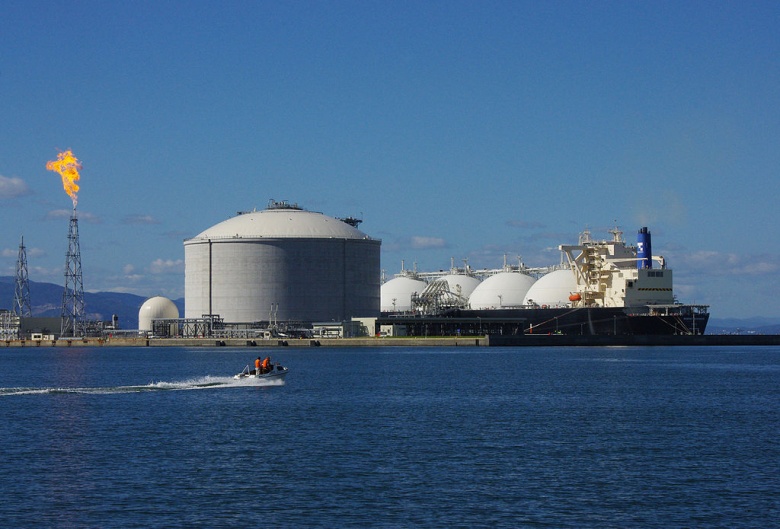 Exports of U.S. liquefied natural gas (LNG) jumped to 9.1 million metric tons (MT) in July, marking a sharp increase from June as some plants exited maintenance activities and Venture Global’s Plaquemines facility ramped up production, preliminary data from financial firm LSEG showed.
Exports of U.S. liquefied natural gas (LNG) jumped to 9.1 million metric tons (MT) in July, marking a sharp increase from June as some plants exited maintenance activities and Venture Global’s Plaquemines facility ramped up production, preliminary data from financial firm LSEG showed.
The U.S. is the world’s largest exporter of LNG and July’s output was its third highest on record. This year the U.S. has seen three of its highest ever monthly LNG production figures, according to LSEG data.
U.S. LNG shipments could have been higher had its third- largest export facility, Freeport LNG, not experienced several unplanned outages, reporting seven power outages at its plants to the Texas Commission on Environmental Quality during the month of July. Its output fell in July to 1.3 million metric tons (MT) from 1.4 MT in June, LSEG data showed.
The U.S. could double its LNG export capacity by 2030, based on projects already under construction and expected to get the financial greenlight as the industry builds momentum following U.S. President Donald’s Trump’s vow to bolster the country’s energy industry. This week Venture Global gave a positive final investment decision for its massive 28 million metric tons per annum (mtpa) CP2 facility in Louisiana.
In July, Plaquemines, also in Louisiana, exported 1.4 MT of the superchilled gas, compared to 1.2 MT in June, helping the U.S. get to 9.1 MT in July, compared to 8.4 MT in June, LSEG data showed.
GAS PRICES FALL IN EUROPE AND ASIA
European gas prices fell in July to $11.56 per million British thermal unit (mmBtu) from $12.38 per mmBtu in June at the European benchmark Title Transfer Facility in the Netherlands, according to LSEG data.
Even so, the softer prices were not enough to deter U.S. LNG exports to Europe, which remained the favored destination. Some 5.25 MT of LNG, or just under 58% of July’s total, headed to Europe during July, slightly lower than the 5.53 MT, or 66%, sold in June, LSEG data showed.
U.S. exports to Europe could increase in the coming years following a trade deal earlier this week in which the European Union promised to buy $750 billion of U.S. energy over a five-year period.
In July, gas prices were also lower in Asia, as the benchmark Japan Korea Marker fell to $12.18 per mmBtu from $12.90 per mmBtu in June.
Exports to Asia rose slightly during the month to 1.8 MT, or 20%, of U.S. LNG exports in July, compared to 1.56 MT, or 19%, in June as demand for energy for cooling grew, according to LSEG data.
“After lackluster Asian LNG demand for much of 2025 so far, hotter July weather drove some improvement,” bankers from Morgan Stanley told their clients in a report on Wednesday.
US SELLS MORE LNG CLOSER TO HOME
U.S. LNG exports to South America grew in July as the continent faced colder-than-normal seasonal weather. The U.S. sold 1.03 MT, or 11% of its total LNG exports, to Latin America, with cargoes going to Brazil, Argentina, Colombia and Chile. Cargoes were also sold to several Caribbean countries, including Jamaica, Puerto Rico and the Dominican Republic.
Egypt continued to import U.S. LNG cargoes, buying eight in July, totaling.59 MT of the superchilled gas. There were also six cargoes with.43 MT of LNG that left U.S. ports in July with no clear destination, signaling they were available for orders.
In July, Canada saw its first LNG shipment from a major plant, with the start-up of LNG Canada in Kitimat, British Columbia. That facility is the first North American plant with direct access to the Pacific Ocean and a shorter sail time to Asia.
LNG Canada exported four cargoes, or.29 MT of LNG, during July, according to LSEG ship tracking data.
(Reporting by Curtis Williams in Houston; Editing by Liz Hampton and Andrea Ricci)